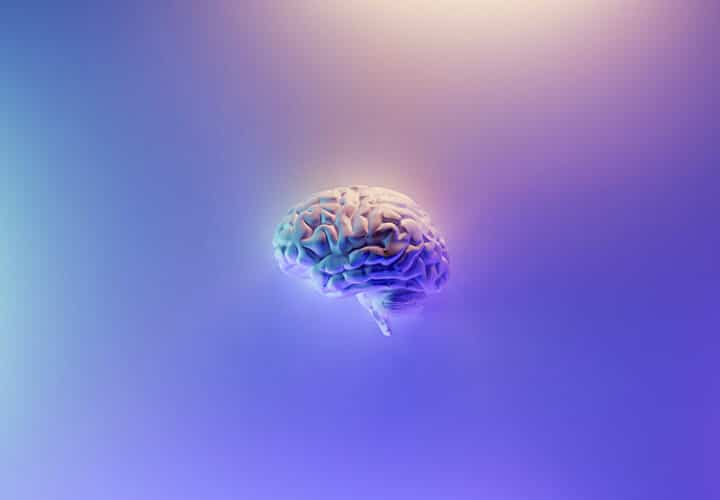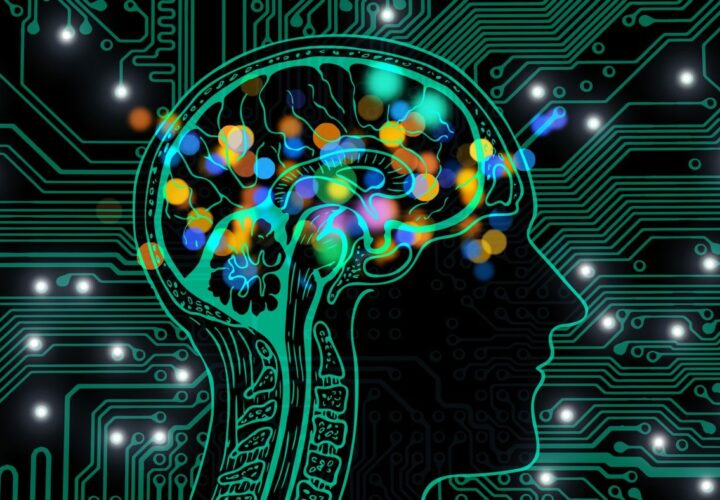Scientist Ed Blonz discusses the role of glucose in maintaining brain function, and why tackling the brain's energy deficiency holds the potential of preventing Alzheimer's.
Research has shown that glucose levels, the brain’s primary source of fuel, in the central nervous system diminishes in aging, and some researchers suggest that the chronic decline in metabolizable energy is the primary cause of Alzheimer’s: Therein lies the opportunity to develop new biomarkers and treatments to intervene before Alzheimer’s symptoms set in.
Being Patient spoke with Ed Blonz, assistant clinical professor at UCSF’s Department of Clinical Pharmacy, about how the progressive deficiency of brain energy may shed light on why people develop Alzheimer’s, and the next steps needed for scientists to detect and treat this deficiency.
Being Patient: Is glucose the brain’s primary source of fuel for the brain?
Ed Blonz: Glucose is definitely the preferred fuel [of] the brain. It doesn’t get there the same way glucose gets to other organs. It first has to pass through what’s called the blood-brain barrier, which is a border guard that keeps the bad substances from getting into the brain. As we age, less and less glucose is able to make that trip through the [blood-brain barrier] into the brain so we end up with a net decrease in the available fuel that the brain prefers.
Being Patient: Would getting more energy be a solution to this problem? And if so, how do we achieve that?
Ed Blonz: That would be the best solution, obviously. One of the ways you do that actually is through vasodilation, through exercise. When you exercise, you will end up producing more heat that has to get away from the muscles because the body requires certain temperatures for its biochemical reactions to take place. We get this vasodilation to pick up the heat and travel around [and] you have a better ability for the glucose to work with the blood-brain barrier. That’s one of the reasons why people that are physically active tend to be at lower risk for Alzheimer’s disease.
Anything that relates to vascular health will be a benefit but once you get past that, how will you get more fuel to the brain? It becomes problematic because there aren’t really that many fuels [for the brain]. The fats in our bloodstream really can’t get through, especially if they’re large-sized fats. Actually, the brain starts to break down its own protein to use it for energy, which is one of the reasons the brains [of] Alzheimer’s patients start to shrink.
So much goes wrong without energy and that’s the question: How do we get that energy into the brain? I think, by taking these fats that turn into ketones, we might have an answer.
Being Patient: Are there clinical trials underway to test whether addressing the brain’s energy deficiency could help treat Alzheimer’s?
Ed Blonz: There is. In fact, Stephen Cunnane [and] his group at the [Université de Sherbrooke] in Canada, have been doing some work with people with mild cognitive impairment … They started giving people 15 grams a day of exogenous [ketones], in other words it’s not produced internally, it’s taken externally. One tablespoon will give you 15 grams, two tablespoons will give you 30 [grams]. [They] didn’t get much [results] with 15 [grams]. [With] 30 [grams], they started getting some results. Now [with] 30 [grams] and 45 [grams], they are finding that people are showing improvements in cognition.
Want to learn more about clinical trials
for Alzheimer’s and dementia?
Check out the Lilly Trial Guide.
Being Patient: Can you tell us more about what exogenous ketones are?
Ed Blonz: It’s just a liquid fat like any vegetable oil. It’s an eight carbon long fatty acid. It makes up about seven percent of the fats in coconut, four percent of the fats in palm kernel oil. But if you take coconut oil, you’re getting 93 percent of the fats that aren’t going to help you just to get that seven percent.
Being Patient: How can we measure whether there’s an energy deficiency in the brain?
Ed Blonz: I’m looking for there to be a biomarker test. I’m hoping that this is something that we’re going to be able to handle. What this biomarker test will do is it will reflect when your brain has all the energy it requires to take care of business. The precursor to amyloid plaque, if the brain has enough energy, [is] operated by one enzyme that turns it into soluble peptides, which then can leave the blood-brain barrier and contribute to the body’s pool. When there’s not enough energy in the brain, a different enzyme takes over. That enzyme changes it into the beta-amyloid plaque.
The whole idea is we need to find out: When is that good enzyme working? And when does it no longer get the call and the bad enzyme is working? This is where we need to develop those biomarker tests. They will be like a bellwether in terms of what’s going on.
Being Patient: Could this be something like a blood test?
Ed Blonz: That’s what I’m looking for. I’m looking to develop a blood test. We go to the doctor for a colonoscopy every 10 years or so to make sure we can catch colon cancer before it becomes colon cancer. I’m looking for these [tests] to be part of your health profile. You’ll develop your baseline. When it starts to drop below, this will be the time that you will then intervene.
The beauty about the test is that when you’re getting a treatment, and [the treatment is] establishing all the energy your brain requires, I am predicting that that blood test will then raise up to normal values again. That’ll be a bioindicator and it can be used for so many things. We’ve got what’s called the post-traumatic cognitive decline that we see in seniors after they awake from surgery, particularly the brain surgery. They tend to be in this confused state. We could find out whether their confused state is due to not enough energy getting to their brains. I think it’s going to be involved in other diseases as well. The main thing [is] we have to get that biomarker out, tested, and approved.
Being Patient: How does the problem of the brain’s energy deficiency unfold over time?
Ed Blonz: You’re affected by your genes, epigenetics, behaviors in life and so forth. But then you have your lifestyle and your diet which can give rise to being on the road towards obesity, hypertension, diabetes, cardiovascular disease and so forth. If you’ve got these going on and you’re not taking care of yourself, you’re hastening the period of time before which your brain is not going to be able to get the glucose it needs.
There’s also a genetic factor involved here called the ApoE gene. People that have one or two copies of the ApoE4 gene will have less of an ability for glucose to get through the blood-brain barrier, at least according to some animal models. They found that animal models [with ApoE4] start out life with a 29 percent reduced ability for glucose to get through the blood-brain barrier. That’s why people with two of those genes end up getting Alzheimer’s at an earlier age.
The thing we do is that we conduct our life and we eat in a way that we don’t develop cardiovascular disease or diabetes or obesity or hypertension, and that’s going to give us a leg up. They did this work on this tribe in Nigeria called the Yoruba. In Nigeria, the Yoruba that had two copies of the ApoE4 gene [have] no relationship with Alzheimer’s disease.
But the Yoruba that have moved to the United States and are eating and acting the way other Americans do [and are ApoE4 carriers], [have a] very strong relationship between ApoE4 and Alzheimer’s disease. How we live our lives is probably the best determinant as to how risky our life is going to be.
Being Patient: How far away are we from finding out whether addressing the brain’s deficiency is an effective way of treating diseases like Alzheimer’s or not?
Ed Blonz: The real issue is there’s not that much money behind the research because this is not like a pharmaceutical that’s going to be made and patented. This is just a different way of eating and providing nutrients that your brain can use … Just like we found out with AIDS that it wasn’t one drug [to effectively treat the condition], it was a cocktail of drugs that really has been the answer, there might be a cocktail of drugs [for Alzheimer’s], where an alternative source of energy could be the integral component that’s missing.
We just approved a drug (Aduhelm) that will help break down plaque, but it doesn’t stop or solve the problem [of] why that plaque was forming in the first place.
Being Patient: The lack of funding for research in the link between Alzheimer’s and the brain’s energy deficiency must be frustrating for you as a researcher.
Ed Blonz: It’s extremely frustrating. One of the reasons it’s frustrating is that there’s so much nonsense out there too. The idea that this would get linked in with the nonsense is really disappointing, especially given how everybody knows people that have had Alzheimer’s or Lewy body [dementia] or any one of these cognitive issues.
The key is going to be getting people and researchers interested in the possibilities of prevention, to roll up their sleeves and start studying it, and I’m hoping that by spreading the word, acting responsibly, staying scientific and not trying to make this a commercial game, we will get enough voices to make it happen.
The interview has been edited for length and clarity.
Contact Nicholas Chan at nicholas@beingpatient.com




How do I know if I am getting the real Exogenous supplement?
This research is groundbreaking and compelling. Thank you Dr. Blonz for leading it, and connecting us with the related pivotal research out of University of Sherbrooke too. I cannot wait to read your book. More, people in general but also research funding decision makers, need to know about this connection between brain energy / glucose and Alzheimer’s. As an aside, I took “Bulletproof’s” version of caprylic acid for many weeks. This is an exogenous supplement, but it upset my stomach greatly. Are there any alternatives? Thanks again for lighting the way for this research.